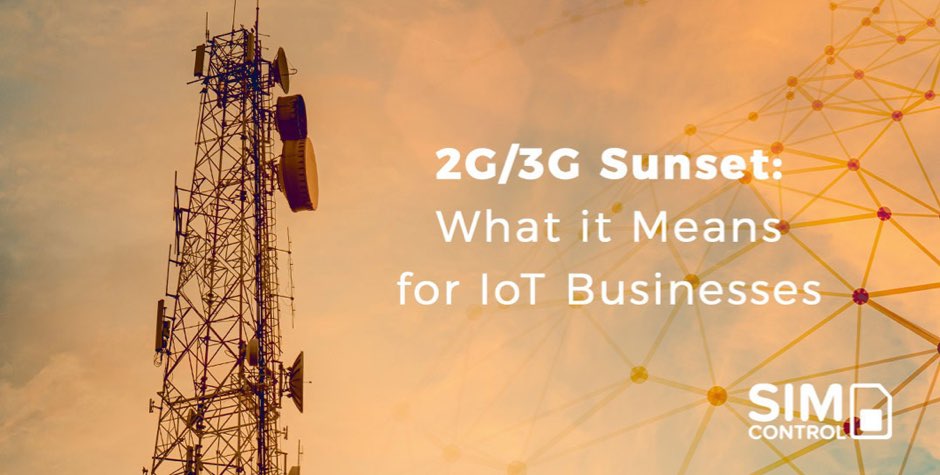
Tech Central: What the sunset of 2G and 3G means for your IoT business
Read the original Tech Central article here: https://flickswitch.co.za/posts/mybroadband-flickswitch-launches-nb-iot-connectivity-on-its-simcontrol-platform/
Second- and third-generation(2G and 3G) has served the mobile industry well for a long time. But as new spectrum is being auctioned and the roll-out of 5G continues to gain traction, the end of 2G and 3G is drawing nearer.
South African telecommunications operators plan to phase out their 2G and 3G networks as they allocate resources for newer technologies.
This is nothing new. Since the very beginning of networking, service providers have shut down legacy networks to make way for the next-generation network technology.
This has big implications for the IoT industry
As such, the shutdown of these older mobile frequencies may seem insignificant, but it has big implications for the internet of things (IoT) industry. Recent surveys show that the sunset of 2G and 3G will affect more than half of all IoT devices connected via cellular. This leaves many IoT businesses in a quandary as they seek alternatives to the network solutions they’ve been using for many years.
In South Africa, current indicative start dates of spectrum sunsets as communicated by mobile networks are:
- Vodacom:3G sunset start is planned for 2023. 2G sunset start is planned for 2025.
- MTN:3G sunset start is planned for 2025/2026.
Official start dates will be announced as they occur. It is expected that 2G services will not be shut down in areas where NB-IoT and LTE technologies have not been activated yet.
Prepare your IoT business for the 2G/3G shutdown
With a large percentage of the 125 million cellular IoT connections deployed around the globe using less than 5MB of data per month, low-bandwidth solutions are still relevant and cost-effective. For this reason, mobile network operators are looking to next-generation LTE technologies such as LTE-M and NB-IoT as a replacement for 2G and 3G. The benefits of these technologies include improved battery life, low power consumption, greater penetration for indoor and outdoor locations, and perhaps most importantly, lower costs. These technologies are also futureproof to avoid obsolescence for many years to come.
Alternatives to 2G and 3G
NB-IoT (narrowband-IoT) is a standards-based, low-power, wide-area networking technology. Developed to connect devices that need small amounts of data, low bandwidth and long battery life, NB-IoT is suitable for a variety of applications and use cases for IoT.
At SIMcontrol, we have expanded our offering to include NB-IoT on Vodacom South Africa’s mobile network as part of our managed APN solution. SIMcontrol now supports NB-IoT in South Africa as part of its drive to make device connectivity easier and more cost effective. NB-IoT services on MTN will be added once the technology is commercially available.
Companies can set up a SIMcontrol account and get Sims provisioned for NB-IoT testing within a day or two. There are no long-term APN contracts, and you only pay for what you use.
The shutdown of obsolete technologies is nothing new, but as 2G and 3G are switched off, devices that can only use these networks will have fewer network options to send data over.
The SIMcontrol platform is designed to provide a wide range of reliable network-agnostic cellular connectivity solutions on a single platform. Click here to contact us to learn more about the futureproof solutions from one of our Sim management specialists.